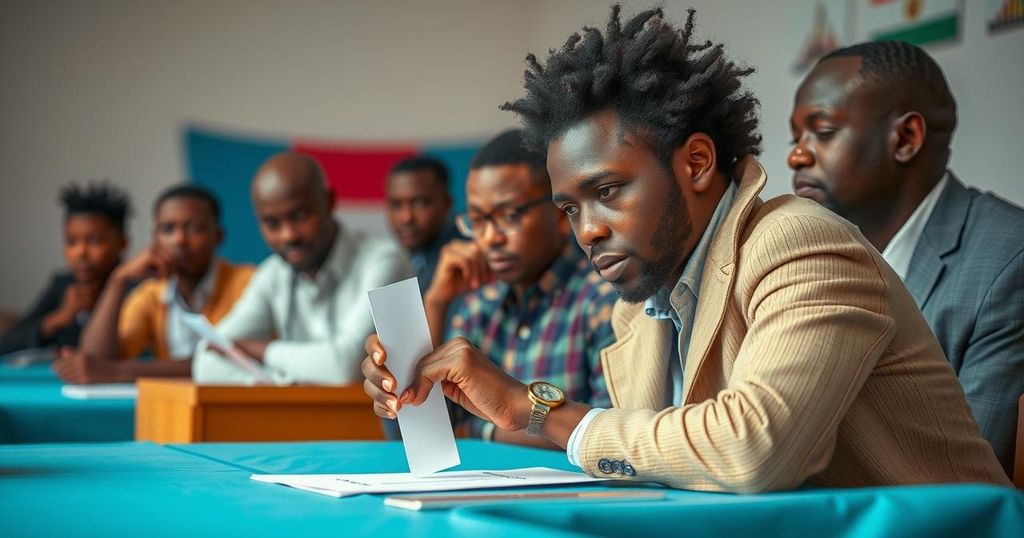Chad Holds Controversial Elections Amid Opposition Boycott and Security Concerns

Chad is voting in legislative and local elections viewed by the government as essential for democratic transition, though opposition groups criticize them as a sham. With underlying issues like Boko Haram attacks and a recent media blackout, these elections highlight the tensions between the ruling regime and those advocating for true political reform.
Chad is conducting legislative and local elections on Sunday, which the administration of President Mahamat Idriss Deby Itno touts as a critical step towards democratization. However, opposition factions have termed this electoral process a ‘masquerade.’ The elections are set against a backdrop of persistent attacks by the jihadist organization Boko Haram in the Lake Chad region, the termination of a security agreement with France, and allegations of interference in Sudan’s ongoing conflict.
President Mahamat Deby, aged 40, ascended to power in 2021 following the death of his father, Idriss Deby Itno, who governed for thirty years. In May 2023, Mahamat Deby secured a five-year presidential term in an election widely condemned by opposition figures as fraudulent. This election is positioned as a possible ‘generational renewal’ of both the National Assembly and local councils, as noted by an anonymous presidential advisor.
Since the last legislative elections in 2011, subsequent votes have faced delays due to jihadist threats, financial struggles, and the COVID-19 pandemic. In 2021, a transitional parliament, composed of 93 members, was instituted through a presidential decree following Idriss Deby’s death. The opposition has opted to boycott the current elections, branding the situation as autocratic and repressive. “Participating in the legislative elections under the current conditions is participating in legislative apartheid,” asserted Succes Masra, leader of the Transformers party, who garnered 18.5 percent of the vote in the last presidential election against Mahamat Deby’s 61.3 percent.
Minister of Infrastructure Aziz Mahamat Saleh contended that the elections would establish a majority favorable to translating the President’s political agenda into practice. In contrast, Professor Ahmat Mahamat Hassan, a constitutional law scholar, cautioned that this election primarily seeks to legitimize a regime perceived as resembling a familial dynasty, one that faces significant dissent domestically and internationally.
As the election unfolds, it occurs amidst a significant media blackout, with journalists participating in a strike to protest governmental restrictions. Following 33 years under the Deby regime, Chad remains a landlocked desert nation recognized for its oil production, yet it ranks near the bottom of the United Nations Human Development Index. Furthermore, the recent heavy rains have resulted in approximately 500 fatalities and the displacement of two million individuals.
The political landscape in Chad has been fraught with challenges, including longstanding autocratic governance. Mahamat Idriss Deby Itno assumed leadership in 2021 upon the death of his father, Idriss Deby Itno, whose three-decade rule shaped the country’s political climate. The current electoral process occurs within a troubled context, marked by jihadist violence, international tensions, and ongoing humanitarian crises, making the calls for a transition to democracy particularly complex. Opposition parties criticize the election framework as merely ceremonial rather than conducive to genuine political reform.
In summary, the elections in Chad are embroiled in controversy as the government attempts to project an image of democratic progression while opposition factions reject the legitimacy of the process. Amidst enduring security challenges and socioeconomic hardship, the outcomes of these elections may have profound implications for the future political landscape of Chad. Continued scrutiny of the electoral integrity and the performance of the current government is essential in addressing both domestic and international concerns surrounding governance in the nation.
Original Source: www.barrons.com








